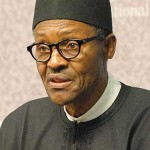by Baba Aye

Muhammadu Buhari was sworn in as president of the west African state of Nigeria on 29 May—almost 30 years after he was overthrown as a military dictator.
Before he wonhe promised to fight corruption, defeat the Boko Haram insurgency and renew prosperity.
He campaigned as a man of the people who had to borrow money to pay for his nomination form. This image was undermined when his wife wore a £35,000 watch to his inauguration.
But the fate of his All Progressives Congress (APC) will be determined by whether it can improve the lot of the working masses.
It promised three million new jobs within a year. It offered a monthly cash transfer of £83 each to 25 million poor people if they send their children to school and get them immunised. It promised a massive housing scheme for working people and to double the number of doctors in three years.
APC now has a majority in both the National Assembly and of the states’ governments so people expect results. But it now says that it has discovered so much rot from 16 years of the previous government that no one should expect miracles.
Class
The working class is not buying this. Mass anger could explode if drastic improvements in living conditions do not materialise soon.
Public sector workers in 18 of Nigeria’s 36 states have been on strike over unpaid salaries since the last week of May.
These include APC-run states owing up to six months’ wages.
The unions have demanded the government start negotiations for a new national minimum wage, even as petrol shortages have almost shut down the oil-rich country.
Revenue is dwindling because of the global fall in oil prices and mindboggling corruption, so it is unlikely that the state could deliver APC’s promises. And two other events point at the hollowness of Buhari’s anti-corruption stance.
Two former state governors appear to have escaped serious corruption charges. Both men are stalwarts of the APC.
But people are still most hopeful he will deliver over the defeat of Boko Haram, ending a conflict that has claimed almost 20,000 lives since 2009. He promised the military command would be relocated to the front until the insurgents were defeated.
Poverty
Even if he succeeds in crushing Boko Haram that will not end the poverty that created the sect. And military victory is unlikely.
Boko Haram has shown an ingenious ability to change tactics, recently reverting to its earlier methods of urban terror.
The first few days of the new government are a period of calm before what could be a huge storm.
Different sections of the elite will try to harness the simmering distrust in their own interests.
The need for socialist intervention and influence within the working class cannot be overemphasised.
Originally published here








